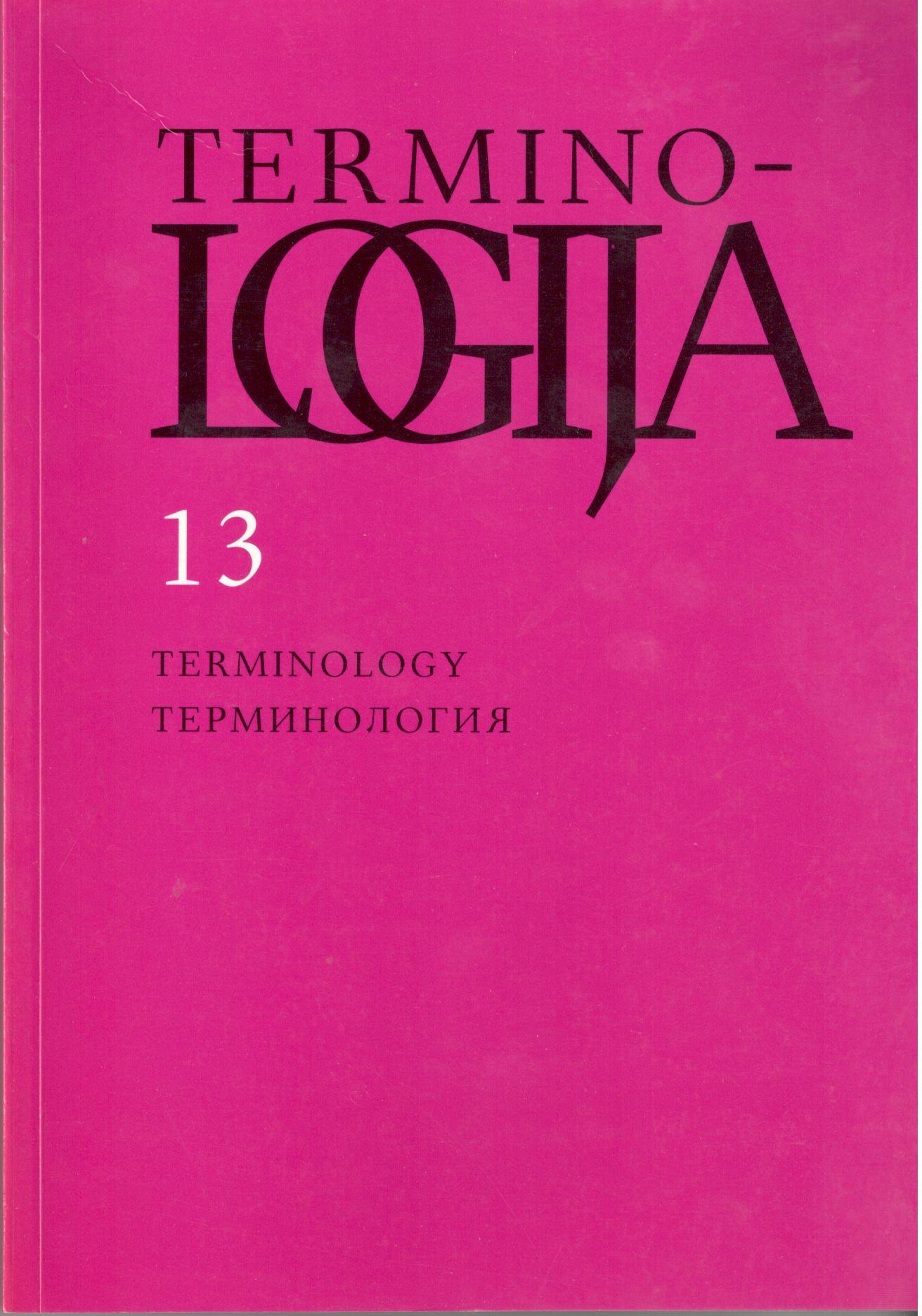Sukti, vyti, vynioti ir jų vedinių sinonimija ir polisemija gyvojoje kalboje, norminimo ir terminizacijos bandymai
Synonymy and polysemy of sukti, vyti, vynioti, their derivatives in the living language and attempts at their normalization and terminologization
Author(s): Jonas KlimavičiusSubject(s): Language and Literature Studies, Lexis, Descriptive linguistics, Baltic Languages, Philology
Published by: Lietuvių Kalbos Institutas
Keywords: synonymy; polysemy; systematicality;distinctiveness;
Summary/Abstract: Synonymy and polysemy are characteristic features of the living language words (dialectisms) sukti – riesti, sukti – vyti, vyti – vynioti both in common language and in dialects and in the Lithuanian Language Dictionary (LKŽ) it is not arranged properly. Semantic collisions of their derivatives are even greater. In dialects such a situation is possible. Common language faces contradictions in the forms of uneliminated ambiguity, poor distinctiveness and insufficient systematicality. All these shortcomings are compounded by inappropriate derivatives created during various periods. The normative Dictionary of Modern Lithuanian (DŽ) is no help in this case. When such words are being terminologized and neologisms are being created it is necessary to take into account non-synonymy, monosemy and systematicality of terms (this is slightly less important in the case of neologisms). Definitions are essential for terminological analysis. It is quite simple to view the direction in which earlier mentioned synonyms separate: sukti (spin, wind) – “to make move while deforming around longitudinal axis when making a thread, string, rope, cable, etc.”; vyti (coil, reel, wind) – “to reel up or whip or role around the axis a thread, string, rope, cable, lead, wire, etc.”; vynioti (wind, roll, wrap, twine) – “to bend a two-dimensional thing around the imaginary axis or to wind it on a roll”; In addition, one more meaning is necessary – “to make a compound thread or a rope from several threads”. Expression of this meaning (especially of rope making), which varies both in dialects and in common, but not special language, could be systematic only in the case of sukti. Dialectisms vija and apvija (of the rope) are replaced by šaka. Non-systematic term of electrical engineering apvijos vyniojimas (coiling of a winding) ought to be replaced by apvijos vijimas. The opinion that vijimas would presuppose impermissible susisukimas (twine) of a wire is groundless: if a wire coils it depends not on the word vijimas, but on the operation and its precise execution.
Journal: Terminologija
- Issue Year: 2006
- Issue No: 13
- Page Range: 48-61
- Page Count: 14
- Language: Lithuanian

